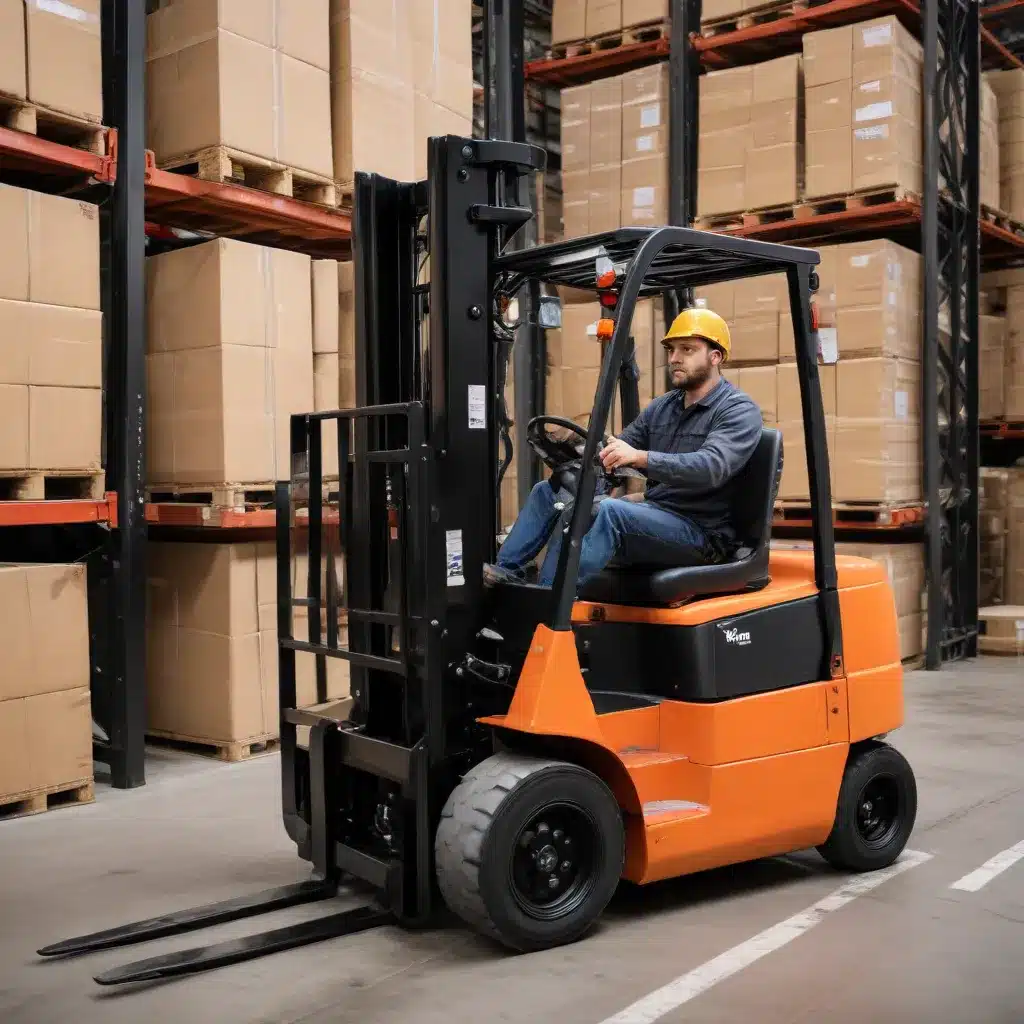
The Importance of Comprehensive Forklift Operator Training
Operating a forklift requires specialized skills and a deep understanding of safety protocols. As a seasoned industry expert, I cannot emphasize enough the critical role that comprehensive forklift operator training plays in ensuring a safe and productive material handling environment.
The Occupational Safety and Health Administration (OSHA) mandates that all forklift operators receive proper training and certification before operating this equipment. This training is designed to equip operators with the knowledge and practical skills necessary to handle forklifts safely, preventing accidents and minimizing the risk of injuries or fatalities.
Effective forklift operator training not only fulfills regulatory requirements but also brings numerous benefits to the workplace. It helps to:
- Improve Safety: Trained operators are better equipped to recognize and mitigate potential hazards, reducing the likelihood of accidents and ensuring the well-being of both the operator and surrounding personnel.
- Increase Productivity: Proficient forklift handling, efficient load management, and reduced downtime due to accidents or equipment damage contribute to improved overall productivity.
- Extend Equipment Lifespan: Proper operation and maintenance practices, as emphasized in training, help to prolong the lifespan of forklift equipment, leading to cost savings.
- Ensure Compliance: Adherence to OSHA regulations through comprehensive training programs demonstrates a commitment to workplace safety and helps to avoid legal liabilities.
Key Elements of an Effective Forklift Operator Training Program
Developing and implementing a robust forklift operator training program involves several crucial elements:
Formal Classroom Instruction
The training should begin with formal classroom-based instruction, covering topics such as:
- Forklift operation and controls
- Load capacity and stability
- Maneuvering techniques
- Workplace hazards and safety protocols
- Applicable OSHA regulations
This foundational knowledge lays the groundwork for safe and efficient forklift operation.
Hands-On Practical Training
Complementing the classroom sessions, hands-on practical training is essential. Operators should have the opportunity to demonstrate their skills in a controlled environment, practicing techniques such as:
- Pre-operation inspections
- Load handling and transportation
- Navigating narrow aisles and tight spaces
- Emergency procedures and accident prevention
This hands-on experience allows operators to develop muscle memory and gain confidence in their abilities.
Ongoing Evaluation and Refresher Training
Forklift operator training should not be a one-time event. It is crucial to:
- Regularly assess operators’ skills and knowledge through both written and practical evaluations
- Provide refresher training at least every three years, or more frequently if necessary
- Offer additional training when operators are assigned to a new type of forklift or when workplace conditions change
Continuous evaluation and training ensures that operators maintain their skills and adapt to evolving workplace requirements.
Comprehensive Documentation
Maintaining detailed documentation of the training program is crucial for compliance and ongoing improvement. This includes:
- Training records for each operator, including certification dates and any disciplinary actions
- Incident reports and accident investigation findings to identify areas for improvement
- Feedback from operators and supervisors to enhance the training curriculum
Well-organized documentation not only demonstrates adherence to OSHA standards but also provides valuable insights for optimizing the training program over time.
Strategies for Implementing a Successful Forklift Operator Training Program
When implementing a forklift operator training program, consider the following best practices:
-
Designate Qualified Trainers: Ensure that the individuals responsible for conducting the training are experienced, knowledgeable, and certified in forklift operation and safety.
-
Tailor the Program to Your Workplace: Customize the training content to address the specific equipment, layout, and hazards present in your facility, ensuring relevance and applicability.
-
Leverage Technology-Enabled Solutions: Explore forklift fleet management systems that can enhance training and safety, such as operator performance monitoring, real-time alerts, and automated reporting.
-
Foster a Culture of Safety: Encourage a safety-first mindset among all employees, reinforcing the importance of adhering to forklift safety protocols and creating an environment where everyone feels empowered to identify and address potential risks.
-
Continuously Review and Improve: Regularly evaluate the effectiveness of your training program, solicit feedback from operators and supervisors, and make necessary adjustments to ensure that it remains up-to-date and responsive to evolving industry best practices.
By implementing a comprehensive and well-structured forklift operator training program, you can empower your workforce, enhance safety, and optimize material handling operations, ultimately contributing to the overall success and profitability of your business.
The Role of Forklift Fleet Management Solutions
Forklift fleet management solutions can play a vital role in supporting and enhancing your forklift operator training program. These advanced systems offer a range of features and capabilities that can help you:
- Monitor Operator Performance: Track key metrics such as driving behavior, load handling, and compliance with safety protocols to identify areas for improvement and target training efforts.
- Provide Real-Time Alerts: Receive instant notifications of potential safety risks or operator errors, enabling immediate intervention and reinforcement of proper procedures.
- Automate Reporting and Documentation: Streamline the process of maintaining comprehensive training records, accident reports, and other essential documentation required for regulatory compliance.
By integrating forklift fleet management solutions into your training program, you can create a more data-driven and proactive approach to operator safety and productivity. Explore the comprehensive forklift fleet management solutions offered by Forklift Reviews to elevate your material handling operations.
Remember, forklift operator training is not just a compliance requirement – it is a strategic investment in the safety, efficiency, and long-term success of your organization. By prioritizing comprehensive training and leveraging the latest technological advancements, you can empower your workforce, optimize your material handling processes, and ultimately, gain a competitive edge in the industry.

